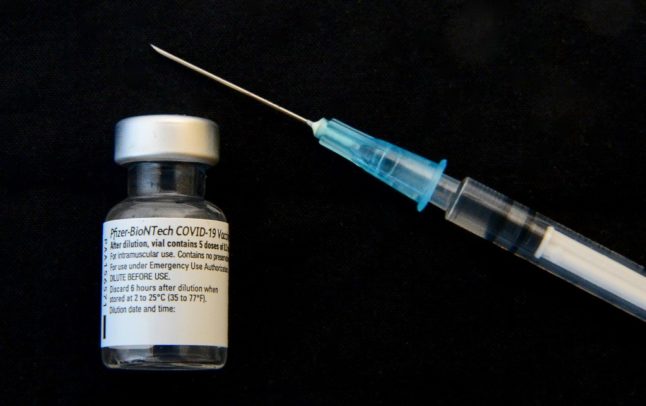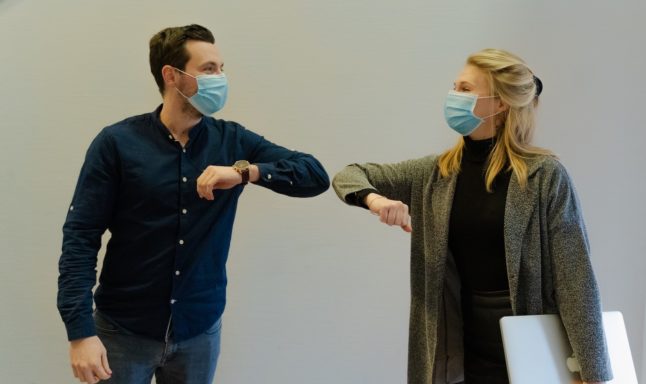The Swiss government is reportedly negotiating a supply agreement for the vaccine with the American company Johnson & Johnson, NZZ newspaper said.
The company is expected to release results of a large clinical trial early next week.
Without specifically mentioning Johnson & Johnson, Nora Kroning from the Federal Office of Public Health (FOPH) said last week that Switzerland continues “to be in negotiations, to see how we can boost volumes,” of the vaccine doses the country already has in stock.
If the deal goes through, Johnson & Johnson would be Switzerland’s fourth supplier of coronavirus vaccines, after Pfizer/BioNtech (3 million doses), Moderna (4.5 million) and AstraZeneca (5.3 million doses).
So far, only Pfizer and Moderna vaccines have been approved for use in Switzerland and in the EU.
Johnson & Johnson’s vaccine is different in that only a single dose would be enough to build up immunity, while the other vaccines require two doses to be administered four weeks apart.
Another advantage of this new vaccine is that it doesn’t have to be stored for months in the refrigerator.
READ MORE: IN NUMBERS: What's the latest on Switzerland's vaccination programme?
There’s no set date on when Johnson & Johnson’s vaccine might be available in Switzerland, but it would likely take a few months, as it would have to be first tested for efficacy and safety by the country’s drug regulator, Swissmedic.
Switzerland needs the fourth vaccine to fill the gap left by the slowdown in the delivery of Pfizer doses, which is causing delays in the inoculation programme.
“Planning has become a huge headache. We have to modify our vaccination plan several times a day”, Laurent Paoliello, spokesperson for Geneva’s Department of Health, told Tribune de Genève.
“These uncertainties are so problematic because it is necessary to know the dates and the quantity of deliveries in order to ensure that people vaccinated today will receive their second dose one month later”, he added.
Other cantons are facing the same delays and, consequently, long wait periods for patients to get their shots.
READ MORE: MAPS: Which Swiss cantons are vaccinating fastest against coronavirus?



 Please whitelist us to continue reading.
Please whitelist us to continue reading.
Member comments